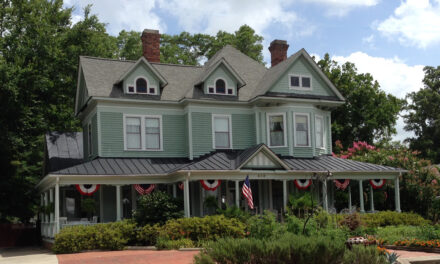The Chamber Orchestra of the Triangle, under the baton of the peripatetic Lorenzo Muti, took the audience on a romantic tour of Spain in this afternoon program. The orchestra was joined by Mary Gayle Greene, mezzo-soprano, Robert Belinic, guitar, and Tamara Farias Kraus, actress, each of whom added spice, flavor, and color to make the trip more authentic.
Music and memory are magical partners in the enjoyment of this art form. In one sense, music exists only as long as the unique tone vibrates in the ear. But in that moment, a multitude of sensory events occur. You may vividly recall a place or a taste or a face or many other things triggered by the tones of the instruments (and voice, on this occasion). But the music does not stop to allow you to linger on that memory. It proceeds to the next tone, the next phrase. You may be overcome with a feeling, an emotion that has not visited you for a long time. Something deep inside may come into fresh awareness with new understanding and acceptance. When the concert is over and the applause breaks the magic spell, even as it expresses appreciation for the moments of elation or catharsis, it would seem that all you are left with is the memory of the music, however accurately or inaccurately you recall it. A melody may linger, and you may whistle or hum it as you leave the theater or hall. The brilliance of a soloist may go with you and amaze you each time you recall it. The style of the music may put you in a mood that influences your decisions for some time to come. If you are trained and experienced, you may catch a note or an entrance that seems askew, and you cannot wait to get home and check your score or recording, but you cannot go back and hear the concert again, for it is over, gone, buried in the mystical and magical synapses of your brain. If you have never heard the piece before, you may put a recording of it on your wish list for your next birthday or holiday.
As I sit here at my computer some hours after this concert and ponder these things, what I am most left with is a sense that I have been somewhere, somewhere that seems somehow familiar though I have never been there. The music of Spain of the early 20th century captivated me with its hot-blooded passion, its sad, brokenhearted longing, and its exultant bravura.
The concert began with Manuel de Falla’s Seven Popular Spanish Songs (arr. Halffter). Mezzo-soprano Greene, an artist familiar to Triangle audiences, sang these varied pieces in a winsome and endearing performance. Her voice was relaxed, velvety smooth, and exciting at times, as fit the songs. The orchestra played with precision. The rhythms were crisp and stirring. The overall sound of the voice and the orchestra together was controlled, balanced, and convincing.
Robert Belinic was the soloist in Joaquin Rodrigo’s most widely known and loved piece, Concierto de Aranjuez, for guitar and orchestra. He is the first performer engaged as a result of the Charles & Shirley Weiss Endowment for Young Soloists. Born in Zagreb, Croatia, he showed music talent at an early age and settled on studying the guitar at age 11. Winning significant recognition in guitar competitions, he has appeared with several different orchestras across the United States and in recitals at the Kennedy Center and at the Isabella Seward Gardner Museum in Boston. His performance was deeply moving. One could sense the intensity of his involvement in the music and his mastery of the skills demanded by this piece. It was especially in the middle slow movement that I found myself transported and captivated. For me, the orchestra and the soloist provided something very special.
After the intermission, Muti returned with mezzo Green and actress Kraus for a performance of the 1915 version of Falla’s El amor brujo (Love the Magician). It is the tale of a widow who is cursed by the ghost of her first husband; he has died, but he reappears every time she finds a new love interest. Cast for orchestra, soloist, spoken voices, and dancers, the only lack was the dancers. Maestro Muti read the minimal male role to the delight of the audience. Recently arriving in the Triangle, Kraus has appeared in theatre in Rochester and in other theatres in New York and New Jersey. She appeared in Burning Coal Theatre’s recent production of The Prisoner’s Dilemma.
The spoken roles and the singing too, for that matter, were in Spanish, and for one whose Spanish vocabulary totals maybe fifty words (ten of them numbers!), I didn’t understand many of the words. However, Kraus’s skills and delivery implied clearly what was happening, and Green’s singing (actually the same persona who was speaking) added plenty of meaning. There was no doubt about the message of the familiar “Ritual Fire Dance.” The orchestra told the story vividly, and one could almost see the flames in Falla’s inspired writing. Special mention must be made of the solo work by members of the orchestra, which was notably stunning and captivating.
I told my companion as we were leaving the Carolina Theatre, “I can’t remember a concert I enjoyed more than this one.” She responded, “You say that after every concert.” Well, yes, maybe so. That is part of the magic of music and memory and a very good reason to support our extraordinary local artists. My favorite composer is always the one I am listening to now. The best concert is always the one I am attending today. I wish I could go to all of them!












